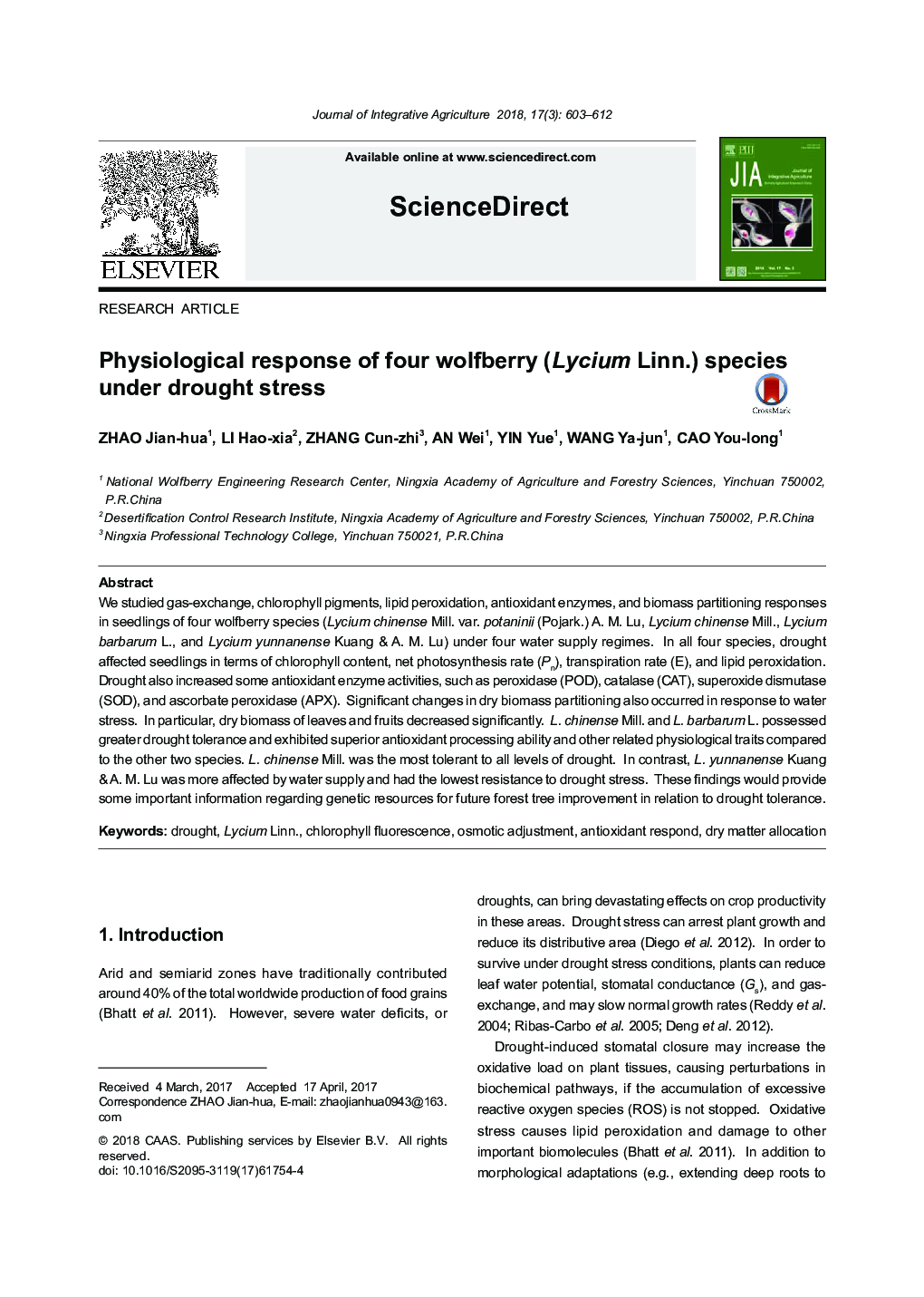| Article ID | Journal | Published Year | Pages | File Type |
|---|---|---|---|---|
| 8875676 | Journal of Integrative Agriculture | 2018 | 10 Pages |
Abstract
We studied gas-exchange, chlorophyll pigments, lipid peroxidation, antioxidant enzymes, and biomass partitioning responses in seedlings of four wolfberry species (Lycium chinense Mill. var. potaninii (Pojark.) A. M. Lu, Lycium chinense Mill., Lycium barbarum L., and Lycium yunnanense Kuang & A. M. Lu) under four water supply regimes. In all four species, drought affected seedlings in terms of chlorophyll content, net photosynthesis rate (Pn), transpiration rate (E), and lipid peroxidation. Drought also increased some antioxidant enzyme activities, such as peroxidase (POD), catalase (CAT), superoxide dismutase (SOD), and ascorbate peroxidase (APX). Significant changes in dry biomass partitioning also occurred in response to water stress. In particular, dry biomass of leaves and fruits decreased significantly. L. chinense Mill. and L. barbarum L. possessed greater drought tolerance and exhibited superior antioxidant processing ability and other related physiological traits compared to the other two species. L. chinense Mill. was the most tolerant to all levels of drought. In contrast, L. yunnanense Kuang & A. M. Lu was more affected by water supply and had the lowest resistance to drought stress. These findings would provide some important information regarding genetic resources for future forest tree improvement in relation to drought tolerance.
Related Topics
Life Sciences
Agricultural and Biological Sciences
Agricultural and Biological Sciences (General)
Authors
Jian-hua ZHAO, Hao-xia LI, Cun-zhi ZHANG, Wei AN, Yue YIN, Ya-jun WANG, You-long CAO,
